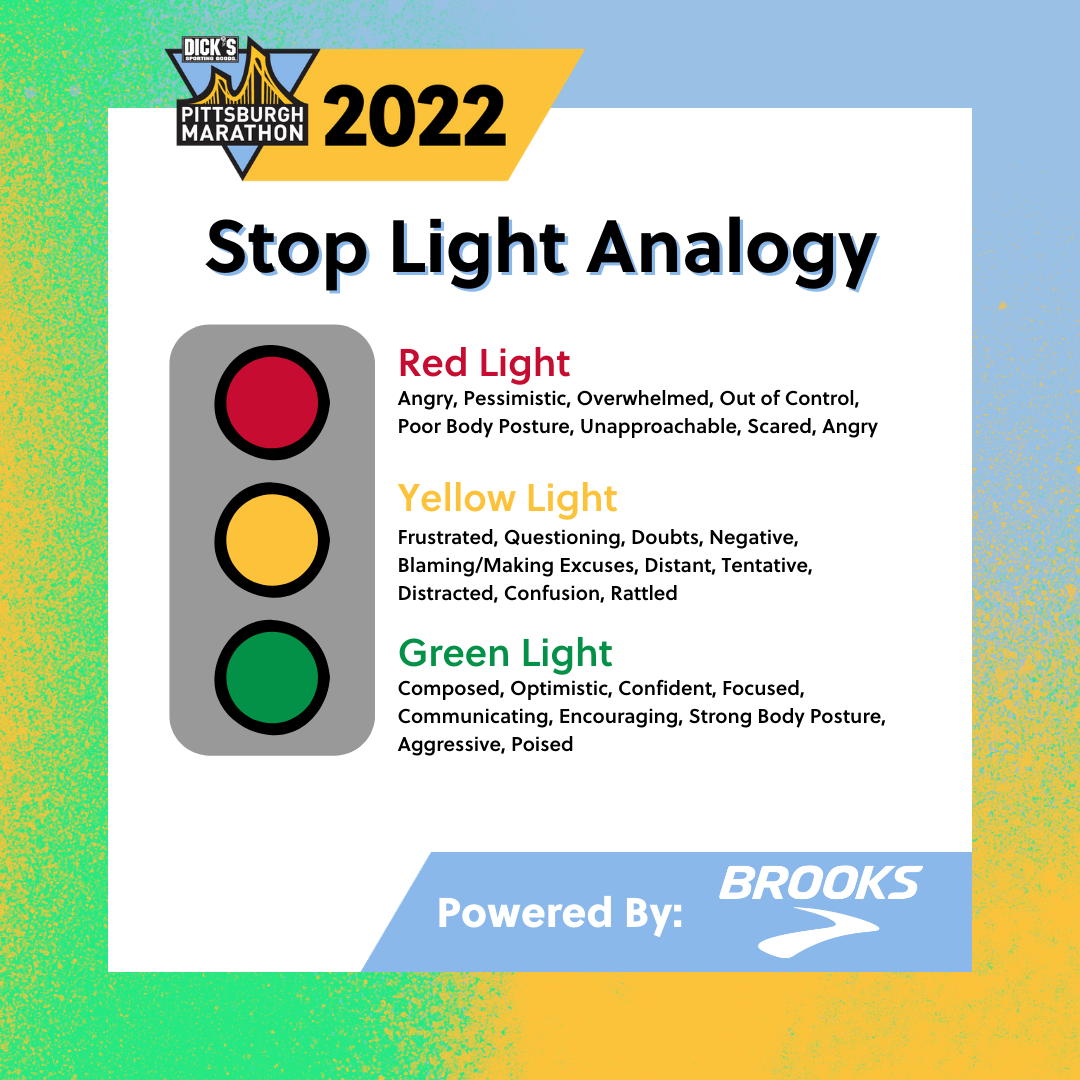Blog
Managing Your Emotions
By Emily Wright, Ph.D.
Effectively managing your emotions is an important skillset for every performer. The emotions you experience during a performance can cover a broad spectrum from excitement and pride to peacefulness and hope to frustration and disappointment. Think about it: You may start your race with high excitement and confidence (“I’m going to have a strong start!”), a few miles into the race you may feel relaxed and calm (“I’m in the zone, hitting my strides, I’m in control”), nearing mile twelve and approaching a steep hill you may experience fear (“I don’t know if I can get over this hill, my legs are burning right now”), after you surpass the hill you may feel frustrated (“I completely lost my form and now I’m behind the pace for my PR”), during the last five miles you may become excited (“I’m really making up ground right now!”), and finally, on the home stretch you may feel pride (“Wow, I just ran a marathon!”). The point is, you will likely experience a range of emotions that have the potential to either help or hinder your performance.
Learn how to use your emotions as a tool to perform your best The key is learning how to use your emotions (both good and bad) as a tool to perform your best. In sport and exercise psychology, this is what we refer to as emotional self-regulation. As a performer, this means using skills and strategies to initiate, maintain, or adapt and change your emotion(s). Here are a few tips and strategies to help you manage your emotions on and off the course:
Develop a self-awareness of your emotions Identifying which emotions do what in any given situation is the first step to learning how to manage your emotions.
Ask yourself: What causes strong positive or negative emotions in my performance? One way to think about this is through the “Stop Light Analogy.” Consider what situations in your performance lead you to experience green lights (positive, productive), yellow lights (neutral), and red lights (negative, unproductive). Typically, you will find a pattern emerge. For example, you might find yourself moving from a green light zone (e.g., calm, optimistic) to a red light zone (e.g., angry, out of control) when you start getting passed on the course by your competitors. Or maybe you find yourself in the yellow light zone when you feel a cramp coming on during the last mile of your race, which leads you to start to lose your composure. Importantly, when you reflect on what situations lead you to experience negative emotions that take you out of the green light zone, be sure to focus your attention to the yellow light zone. When you find yourself in the yellow light zone, you have one of two potential response options:
- Respond productively to put yourself back into the green light zone
- Respond unproductively and put yourself into the red light zone

From a psychological perspective, you want to give yourself the best opportunity to experience success during your performance. Therefore, you should aim to respond productively to the negative emotions. Away from these situations, you can create alternative response strategies:
Strategies
- Control Them: Create response routines when you find yourself losing control of your emotions. Example: 3R’s: Respond (e.g., let it go), relax (e.g., 1-2 centering breaths), refocus (e.g., cue word/phrase: be present)
- Let Go of Them: Embrace a neutral mind. A neutral mind takes you out of good or bad thinking (judgment thinking). It reminds us that the mental process is OK, and we do not need to be perfect.
- Redirect Them: Find the flip side! Our negative emotions are great at telling us what we don’t want. But they can also reveal what we most want and need. So, if you don’t want to feel something, gently redirect your attention, and ask yourself what you do want.
Taken together, emotions are a critical part of sport and competition. The key is gaining control of your emotions to help your performance rather than let your emotions control you and hinder your performance. To do this, strive to develop alternative response strategies to support you in effectively managing your emotions for best performance outcomes.

